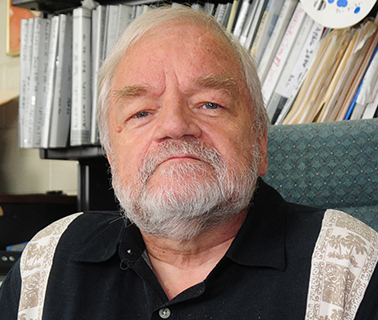Facing My Condition
I am short and bow legged—two common symptoms of a disease I did not learn about until I was 33 years old. In fact, I first heard of X-linked hypophosphatemia (XLH) when my 16-month-old daughter was still not walking and was falling repeatedly. Fortunately, her pediatrician had read about a rare genetic disorder called Vitamin D Resistant Rickets, another name for XLH. He referred us to Virginia Commonwealth University Medical Center, where we were both diagnosed with XLH and enrolled in clinical studies.
When I spoke with physicians about XLH, the symptoms I had experienced since childhood suddenly made sense. Without proven treatments for the disease, I did not know what the future would hold for me. However, I knew that my condition did not limit me prior to the diagnosis, and I was determined that it would never hold me back.
Living with the Unknown
“I learned to live with my physical limitations and continued to do whatever I wanted. I served in the U.S. Navy for two years during my late teenage years as a storekeeper and later attended college.”
I was raised in a poor family as the oldest of seven children. Despite my bowed legs, short stature, and barrel chest, I was best known for climbing trees and riding my bicycle everywhere. However, I was lousy at sports as I could not run very fast. My schoolmates sometimes made fun of my legs, calling me mean-spirited names. Pediatricians told my mother I probably had rickets and needed to eat foods with more Vitamin D. There was no family history of rickets and none of my siblings had similar symptoms.
I traveled extensively during a 36-year journalism career, spending the last two decades in the Far East as a reporter for Stars and Stripes, the daily newspaper for the military community. I even parachuted out of a plane as part of a story assignment – the thrill of a lifetime. The only thing I did not do was cover wars. I told my editors that I could go but couldn’t run away if attacked.
Watching my Condition Progress
I remained fairly healthy until 1997 when, while snorkeling off the coast of Okinawa in Japan, I suddenly lost all feeling in my left leg. After months of tests, doctors found that excess bone growth in my spine was pressing down on the nerves. I had a 16-hour spinal stenosis operation, which restored feeling and my ability to walk without a cane.
Doctors at the U.S. Naval Hospital had read literature that showed there was no approved medication for adults with XLH and that I would probably need more back operations as I grew older. That has proved to be true – I have since had three more. Today, I walk with a cane and am limited to over-the-counter pain medications to manage my symptoms. My recovery from the last two operations resulted in limited mobility and chronic back and neck pain especially, after walking or standing for long periods. I am three inches shorter after my last operation.
Since diagnosis, I have had other health issues that I now realize were probably associated with XLH – though nobody made the connection at the time. In 1991, I was diagnosed with Meniere’s disease – a disorder of the inner ear – after episodes where I would feel dizzy, nauseated and fall. I subsequently had a corrective shunt implanted behind my right ear to drain excess fluid believed to cause the condition. I have had a history of dental problems, losing my front teeth at the age of 20 and wearing a number of partial plates. I now wear dentures.
I recently retired and moved to Indiana, where my daughter now lives with her two sons – ages 13 and 11. My daughter has a worse case of XLH than I do. She broke both her legs and had them reset while in her teens and has had bone grafts and pins inserted into her lower legs. Both my grandsons have XLH and have had surgeries on their legs. Despite the challenges, there is nothing more fulfilling than the time we spend together.
Looking Ahead with Hope
“I am not sure what the future holds, or how my condition will progress over time. Yet that does not stop me from living a full life.”
I still love to write. I am the editor of an online poetry arts magazine called Indiana Voice Journal and have published two books on poetry. I am working on increasing my strength by exercising at home.
I’m also lucky to have the love and support of my daughter and online XLH groups.
My advice to people with XLH is to seek support from others with the condition. Research the condition as much as you can so you know what you are up against. I hope that researchers will find a medication for adults with XLH. In the meantime, we cannot let the condition limit us.
Written and submitted by David
X-linked Hypophosphatemia (XLH)
Learn more about X-linked hypophosphatemia, accessing related resources, and finding opportunities to participate in research for XLH.
Learn More about XLH
